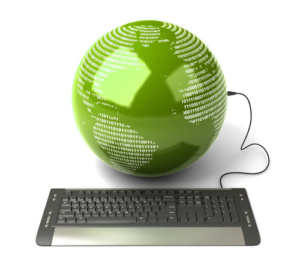Categories
Archives
Interesting stats and info about the International Press Telecommunications Council’s technical standards for exchange of news information:
 1.) The International Press Telecommunications Council publishes 14+ technical standards that are intended for the business-to-business exchange of news among news agencies, other news providers and publishers.
1.) The International Press Telecommunications Council publishes 14+ technical standards that are intended for the business-to-business exchange of news among news agencies, other news providers and publishers.
2.) At least one or two IPTC standards are in use at virtually every newspaper and news web site in the world.
Publishers use IPTC standards to save money and improve the ability of their news products to be used by customers.
3.) IPTC standards for news exchange are available for downloading at no cost – and there are no royalties or fees.
The only source of income for IPTC is membership dues. Membership currently consists of more than 50 organizations and individuals worldwide.
4.) All IPTC standards are designed to be independent of any specific language.
Although our publications are written in English and meetings are conducted in English, every recent standard is usable by any written language that is supported by Unicode.
5.) More than 70 software applications support IPTC Standards.
Software developers seamlessly integrate IPTC standards into their products – often in subtle ways that are not obvious to customers.
More information:
IPTC.org
IPTC Standards
Contact: Michael Steidl, mdirector@iptc.org

It’s an Olympic year for IPTC’s SportsML 3.0 standard, the recently released update to the most comprehensive tech-industry XML format for sports data.
Norsk Telegrambyrå (NTB), in Norway, is one of the first news organizations to implement SportsML 3.0, in time for the 2016 Games in Rio.
“We figured, why not use the latest technology available?” said Trond Husø, system developer for NTB, who worked on the standard’s update, released in July. “SportsML 3.0’s use of controlled vocabularies for sport competitions and other subjects now provides many benefits, including more flexibility. Storing results is also more convenient.”
SportsML 3.0 is the ideal structure and back-end solution used by many major news organizations because it is the only open global standard for scores, schedules, standings and statistics. “It saves the time and cost of developing an in-house structure,” said Husø, also a member of IPTC’s Sports Content Working Party.
The Rio Games, which will host about 10,500 athletes from 206 countries, for 17 days and 306 events, are revolutionary for big data and new approaches for managing it. For the first time, the International Olympic Committee (IOC) used cloud-based solutions for work processes including volunteer recruitment and accreditation.
And consider the experimental technologies and apps launched by key broadcasters and Olympic Broadcasting Services, the Olympic committee responsible for coordinating TV coverage of the Games: virtual reality footage, online streaming, automated reporting, drone cameras, and Super-High Vision, which is supposedly 16 times clearer than HD.
Billions of Olympic spectators worldwide have naturally come to expect real-time results and accurate scores to be delivered to them, with a side of historical perspective. All with little thought as to how the information reaches the public, be it via tickers on websites, graphic stats on TV screens, or factoids offered by commentators.
Schedules, competitors’ names, bio information, times, rankings, medalists – how does all of this data get served up so quickly and uniformly among networks and news services? And how does it get integrated into existing news systems, namely SportsML 3.0?
It starts with the IOC – the non-profit, non-governmental body that organizes the Olympic Games and Youth Olympic Games. They act as a catalyst for collaboration for all parities involved, from athletes, organiser committees, and IT, to broadcast partners and United Nations agencies. The IOC generates revenue for the Olympic Movement through several major marketing efforts, including the sale of broadcast rights.
The IOC produces the Olympic Data Feed (ODF), the repository of live data about past and current games. The IOC is responsible for communicating the official results; they use the specific ODF format for their ODF data.
Paying media partners sign a licensing agreement to use ODF, to report on results through their own channels, and build new apps, services and analysis tools.
The goal of ODF is to define a unified set of messages valid for all sports and several different news systems – so that all partners are receiving the same data, at the same time. It was introduced for the Vancouver Games in 2010 and is an ongoing development effort.
According to the IOC’s website, ODF plays the part of messenger. From a technical standpoint, the data is machine-readable. ODF sends sports information from the moment it is generated to its final destination via Extensible Markup Language (XML). XML, a framework for storing metadata about files, is a flexible means to electronically share structured data via the Internet, as well as via corporate networks.
IPTC’s SportsML 3.0 easily imports data from ODF. Using SportsML to structure the ODF’s data is a broad and comprehensive solution to approaching all sports and competitions worldwide. ODF has identifiers for sports and awards (gold, silver, and bronze medals) executed at the Olympic Games; sports outside of ODF are identified by vocabulary terms of SportsML.
“SportsML 3.0 provides one structure for the data for developers to work in,” said Husø. “The structure will be the same, even if there are changes to ODF in future Olympic Games; the import and export process of the data will not change.”
Among content providers that use SportsML (various versions) are NTB, AP mobile (USA), BBC (UK), ESPN (USA), PA – Press Association (UK), Univision (USA, Mexico), Yahoo! Sports (USA), and Austria Presse Agentur (APA) (Austria), and XML Team Solutions (Canada).
SportsML 3.0 is based on its parent standard, NewsML-G2, the backbone of many news systems, and a single format for exchanging text, images, video, audio news and event or sports data – and packages thereof. SportsML 3.0 is fully compatibility with IPTC G2 structures.
For more information on SportsML 3.0:
SportsML 3.0 Standard, including Zip package
SportsML 3.0 Specification Documents, IPTC’s Developer site
NewsML-G2 Standard
Contact: Trond Husø @trondhuso, Trond.Huso@ntb.no